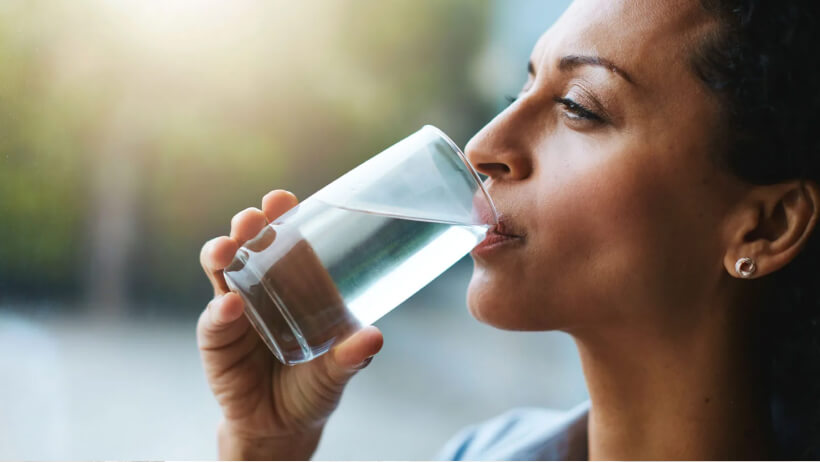Staying properly hydrated becomes increasingly important during hot weather and heat waves. Learning how to drink water properly and adequately can help you maintain comfort and support your overall well-being during challenging weather conditions.

Understanding the Importance of Proper Hydration
Drinking water properly and adequately serves multiple functions beyond simply quenching thirst. Water helps regulate body temperature, supports digestion, and maintains various bodily functions that are essential for daily comfort and energy levels.
Common Signs of Inadequate Hydration
When you don’t drink water properly and adequately, you may experience:
Fluid Loss Symptoms: Your body may show signs such as dry mouth, persistent thirst, and general discomfort. These are natural indicators that your hydration habits need adjustment.
Digestive Discomfort: Irregular drinking patterns or consuming very cold beverages in large quantities may contribute to digestive discomfort, affecting appetite and energy levels throughout the day.
Heat-Related Discomfort: During hot weather, inadequate hydration may contribute to feelings of fatigue, mild headaches, or general discomfort when exposed to high temperatures.
Sleep and Energy Concerns: Poor hydration habits may be associated with restlessness, difficulty concentrating, or feeling less energetic during daily activities.
Best Practices for Drinking Water Properly and Adequately
1. Maintain Consistent Hydration Throughout the Day
The key to drinking water properly and adequately is consistency rather than waiting until you feel thirsty. Sip small amounts regularly instead of consuming large quantities at once. This approach helps your body maintain steady hydration levels and supports comfortable digestion.
2. Choose Appropriate Water Temperature
Room temperature or slightly cool water (around 68–86°F) is generally more comfortable for regular consumption than ice-cold beverages. This temperature range is easier on your digestive system and allows for better absorption throughout the day.
3. Start Your Morning with Hydration
Beginning your day with a glass of room temperature water can help replenish fluids lost overnight through natural processes like breathing and perspiration. This simple habit supports your body’s natural rhythms and helps you start the day feeling refreshed.
4. Time Your Water Intake Strategically
Consider spacing your water consumption around meals rather than drinking large amounts during eating. Many people find it comfortable to wait about 30 minutes after meals before resuming regular water intake, allowing for optimal digestion.
5. Customize Your Approach Based on Individual Needs
Drinking water properly and adequately looks different for everyone:
For Older Adults: Smaller, more frequent sips throughout the day may be more comfortable. Consider avoiding large amounts of fluids in the evening to minimize sleep disruption.
For Children: Room temperature water and gradual sipping work well. Natural hydration from soups, fruits, and mild beverages can supplement water intake effectively.
For Sensitive Digestion: Room temperature or slightly warm water may be more comfortable than cold beverages.
For Hot Weather Tolerance: Some people prefer cooling beverages like herbal teas (chrysanthemum, mint) or natural fruit waters to help maintain comfort during heat exposure.
Additional Hydration Strategies
Water-Rich Foods and Natural Beverages
Complement your water intake with hydrating foods and beverages such as:
- Fresh fruits with high water content (watermelon, oranges, berries)
- Light soups and broths
- Herbal teas served at comfortable temperatures
- Natural fruit waters or lightly flavored beverages
- Thin porridges or light grain-based drinks
Creating Sustainable Hydration Habits
Developing a routine for drinking water properly and adequately involves:
- Keeping water easily accessible throughout your day
- Setting gentle reminders to maintain consistent intake
- Paying attention to your body’s comfort signals
- Adjusting your approach based on activity level and weather conditions
- Finding beverages and temperatures that you genuinely enjoy
Seasonal Considerations for Hot Weather
During particularly hot weather, drinking water properly and adequately becomes even more important. Consider these additional strategies:
- Increase your overall fluid intake gradually when temperatures rise
- Choose lighter, more frequent meals to support comfortable digestion
- Plan outdoor activities during cooler parts of the day when possible
- Keep hydrating beverages readily available in your living and work spaces
- Pay extra attention to hydration when spending time outdoors or being physically active
Building Long-Term Hydration Success
The goal of drinking water properly and adequately is to create sustainable habits that support your daily comfort and energy levels. Focus on consistency rather than perfection, and adjust your approach based on what feels most natural and comfortable for your lifestyle.
Remember that good hydration habits contribute to your overall sense of well-being and can help you feel more comfortable and energetic throughout the day, especially during challenging weather conditions.
Conclusion
Learning to drink water properly and adequately is a valuable life skill that supports your daily comfort and well-being. By focusing on consistent, moderate intake at comfortable temperatures, you can develop hydration habits that serve you well year-round, with particular benefits during hot weather seasons.
The key is finding an approach that feels natural and sustainable for your individual needs and lifestyle, allowing you to maintain optimal hydration without disrupting your daily routine or causing discomfort.
Disclaimer: This article is for informational purposes only and should not replace professional medical advice. Always consult with healthcare providers for medical concerns or before making significant dietary changes during illness.






